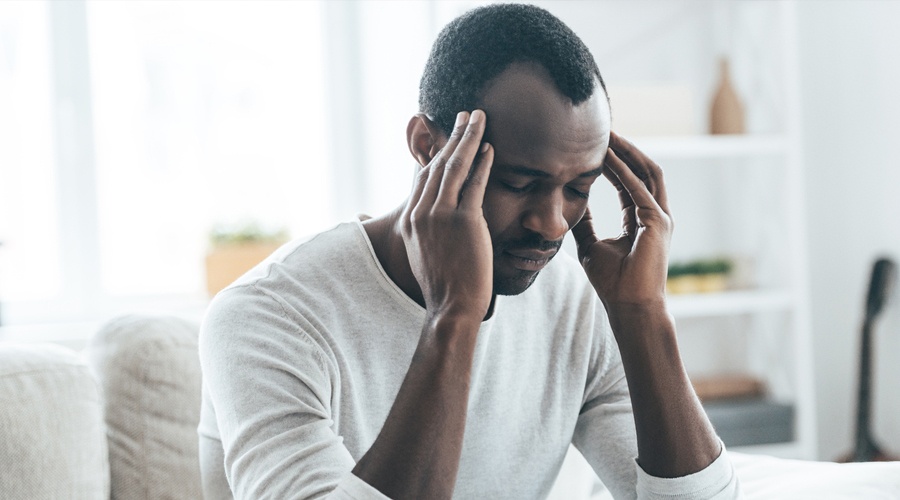If there were only one number to gauge your overall health, fitness, and longevity, it would be...
Long-Term Effects of Concussions

Every concussion is a traumatic brain injury. And even a mild concussion can lead to significant health challenges. Although some may notice an improvement in their condition immediately, or after several months, others may continue to suffer lingering effects for much longer. If symptoms last more than three months, this is defined as post-concussion syndrome (PCS).
PCS SYMPTOMS often include, but are not limited to:
- Headaches or migraines
- Personality changes
- Depression
- Sleep troubles
- Memory issues
- Sensitivity to light and/or sound
- Difficulties focusing
- Light-headed or dizziness
What is Concussion Recovery?
A WIDE RANGE OF SYMPTOMS CAN STILL BE PRESENT AFTER ONE YEAR
According to a 2012 report titled “Long Term Consequences: Effects on Normal Development Profile after Concussion,” shared by the U.S. National Library of Medicine, there are a variety of long-term effects of concussions, or PCS, that can still impact people a year after their initial injury.
“At one year post-injury, the most common symptoms appear to be a combination of the physical, the psychosocial, and the cognitive, with reports of headaches, dizziness, disturbances of senses, light and noise sensitivity, and various psychiatric symptoms, including depression, anxiety, coping issues, and psychosocial disability,” the report states, adding that some can experience complications for even longer.
“Some adults continue to show motor deficits, functional deficits, and persistent depressive symptoms over one year post-injury,” it adds.
SUCH SYMPTOMS CAN NEGATIVELY IMPACT A PERSON’S OVERALL WELLNESS
The long-term effects of concussions, or PCS, can have a significantly negative effect on the quality of life for many of those who suffer from them. Jobs are lost. Relationships are broken. Headaches and other symptoms can be debilitating. It can even be hard to get out of bed some days.
THERE ARE TREATMENTS AVAILABLE
One concussion treatment that may help those suffering from the long-term effects of concussions, or PCS, is hyperbaric oxygen therapy (HBOT). Used both as a sole and complementary treatment, HBOT introduces pressurized oxygen into the bloodstream. The increased oxygen helps to modulate the stabilization, growth, and repair of the damaged blood brain barrier. Additionally, this accelerates the process of neurogenisis and neuroplasticity, which can improve cognitive and/or physical impairments.
HBOT may also address other symptoms associated with concussions and PCS. For instance, it has been argued that depression is a physical, not mental, disorder—possibly caused by inflammation, which HBOT can reduce. Consequently, using HBOT for PCS can improve or eliminate symptoms for those experiencing the variety of its long-term effects.

Written by Alan Katz, MD, FUHM, FACEP, FAAEM
Dr. Alan Katz, National Medical Director of Hyperbaric Medical Solutions (HMS), is double board certified in Emergency Medicine and Hyperbaric Medicine. He directs clinical operations, education and research initiatives, and the integration of other regenerative medicine therapies....
Read More



